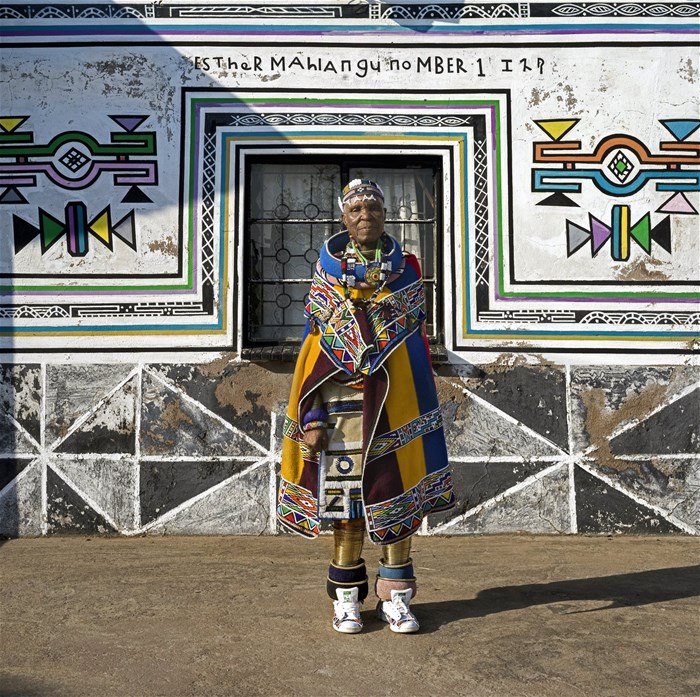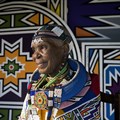Dr Esther Mahlang has been awarded an honorary doctorate by the University of South Africa (Unisa) in recognition of her mathematical prowess. The degree of Doctor of Philosophy in Mathematics (Honoris Causa) was awarded at a graduation ceremony held at the Unisa Muckleneuk Campus in Pretoria on Tuesday, 16 April 2024.
In 1999, Mahlangu became the first woman artist to be commissioned to decorate a BMW car in traditional Ndebele design, a feat only achieved by major international artists, Andy Warhol and David Hockney. The car, a BMW 525i, is the first “African Art Car” and was exhibited at the National Museum of Women in Arts in Washington DC, USA and the British Museum in London, UK. She was later also commissioned to paint the tail of a British Airways Boeing.
A self-taught artist with no academic qualifications, Mahlangu is known for her bold large-scale contemporary paintings that reference her Ndebele heritage. She has not only created original and innovative artworks reflecting this heritage but also shares her knowledge and skills with the younger generation and the wider public. She has established an art school in her home village, where she teaches the traditional Ndebele style of painting and beadwork to both children and adults.
A well-travelled artist whose work is exhibited all over the world, Mahlangu is a remarkable example of how art can transcend boundaries and connect people across cultures. Her paintings are both colourful and geometric. It is generally accepted that, although seemingly simple, the geometric abstractions in her art are underscored by the constant repetition and symmetry of such simple shapes that make the whole work quite complex.
In her MA thesis titled “Ndebele Mural Art and the Commodification of Ethnic Style during the Age of Apartheid and Beyond” (2017), international art student Craniv Ambolia Boy describes Mahlangu’s art thus: “Her composition is more compact, more engaging and complex than that of her contemporaries, the borders are more complicated. She tends to frame her pattern motifs.”
In awarding her an honorary doctorate in Mathematics, Unisa affirms the notion that Mahlangu’s work truly transcends art. Speaking at the opening of the 2024 Autumn Graduation season, Unisa principal and vice-chancellor, professor Puleng LenkaBula said: “Here at Unisa we recognise Dr Mahlangu’s work as something that transcends art. It is our firm conviction that her work is a form of mathematics and should thus be recognised as such. As an African university, we have a responsibility to recognise and affirm our indigenous knowledge systems and to ensure that they do not play second fiddle to other knowledge systems in the world”.
































